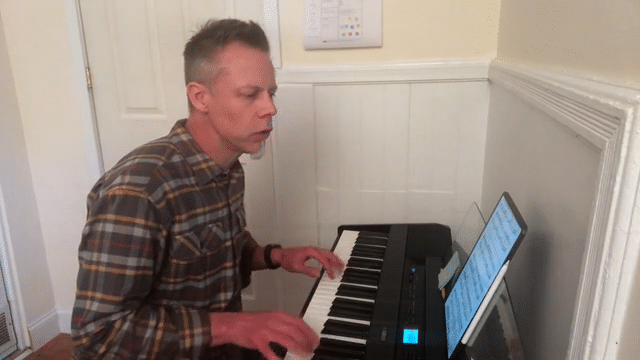
Joanne Stone and I recently had a great conversation about wicked problems. I love the word wicked. It’s a wonderfully positive word in my native New England vernacular. We use it to amplify or express the superlative of an idea: a wicked good movie, wicked awesome lobster dinner, a wicked nice day at the beach.
The idea of a wicked problem comes from the realm of social planning in the 1960s. It describes any problem that is too complex to just solve—where there are innumerable challenges, there’s no obvious end-point, there are incomplete data or contradictory or changing circumstances. In this sense, the word wicked means neither evil (its usual meaning) nor awesome, the way I use it. It means resistant to resolution, and it embraces the idea of a problem that is extreme and huge, practically unsolvable.
Joanne asked, “What’s the most wicked problem you can think of?” My answer: the fixed mindset that seems to be driving so much of the fear and polarized thinking that’s damaging the world today. And my wicked big question toward a solution: how can we cultivate growth mindset in all people?
Fixed by fear
This certainly meets the criteria of a wicked problem. There are multiple factors, there’s no yes/no answer, and there are many ways of expressing and defining the problem. I’ve been mulling this over since the pre-COVID era (remember back then?). Fixed thinking manifests in a lack of personal mobility and choice, driven by fear: fear of the unknown, the distant, the “other.”
For example, why do people who live in economically depressed areas stay there? Why do they suffer? Why don’t they just learn a new trade or move somewhere else where they can find a decent job? I get it that they were born there, that they feel strong ties to the place, but it’s so easy nowadays to move somewhere else and get a job. Or to retrain yourself, to learn something new, or to find a job that lets you work remotely. We’ve never had so many choices. Why are there people who get stuck in victim mentality or stick with a dying profession that doesn’t make economic sense anymore? Their grandparents or great-grandparents moved to that place back when the factory opened—their ancestors were growth mindset pioneers, willing to move to wherever there was work, ready to discover new places and learn new skills. How and when did the grandchildren and great-grandchildren lose that spirit? Why don’t they move and seek job opportunities someplace else, now that the town is closing down?
This closed mindset also blinds people to evidence-based thinking about things like pandemic control or the ability to do any meaningful kind of risk assessment. For some of us, our minds get shut down by fear of the unknown—for example, fear of immigrants—even though our great-grandparents probably were immigrants (mine were!). Today’s immigrants, who successfully moved themselves and their families out of terrible danger and hardship, represent some of the most enterprising, creative, and determined people in the world. But instead of their new homeland embracing what they bring to it, these people are too often shunned and rejected instead.
Embracing change for growth
We see more growth mindedness in people who have made deliberate changes in their life, like moving to a new area or being in a relationship with someone from a different culture. That’s a chicken-and-egg issue and another wicked problem in itself: do people with a growth mindset seek out a more diverse and enriching set of life experiences, or does that exposure unlock the potential for growth mindset?
By definition, wicked problems don’t have easy answers. But for me, there’s a great deal of hope in education. I wish we could get important stuff like emotional intelligence, critical thinking, and growth mindset classes into children’s school curriculum. It should be standard for kids to grow up thinking like this, with curiosity and enthusiasm about the world and their future. Our social media bubbles are reinforcing our fixed mindsets; we need to learn that we have agency, that we are in control of our personal outcomes before fixed mindset manifests.
If we could just make all learning more self-directed, more rewarding, more joyful… Surely people would see the connection between effort and growth and the satisfaction they bring, whether it’s getting better at math, mastering a musical instrument, learning a new trade, or whatever you’re motivated to find a path in.
This approach is what I love about agile software development and creative work in general. It’s a contrast to the scarcity economics management model from the industrial era. In the industrial age, scarcity thinking made sense: if I had a ton of coal and a ton of iron, then you didn’t have those same raw materials, and my company would make steel and yours couldn’t—my company would win. But in creative intellectual problem-solving work, abundance thinking is more apt: if I have a good idea, it doesn’t prevent you from also having a good idea. There’s an abundance of good creative ideas—in fact, the more ideas, the better! We’re better off when we encourage each other and share with each other.
This growth mindset abundance thinking is a long way from the small town in western Massachusetts, where I grew up. It was safe, for sure—as long as you were one of us: white, Christian, English-speaking. My mind shifted and opened when I moved to Boston, a much more global, open, and creative city, to study, participate in big-city arts and culture, and work in tech companies. (Or did I move to Boston because I was more growth-mindset oriented? That chicken-egg question again…) I was suddenly surrounded by people who were different from me. They looked different; they thought differently; they challenged me and helped me grow. It was great!
Protocols for change
Perhaps my childhood passion for playing with computers led me to be more open and move on from smalltown thinking. Ultimately, it all led me down the road to the Core Protocols, informing so much of my teaching today. The framework encourages awareness of what we really want and need, along with the ability to ask for help and continually grow and improve; the ability to share what we’re feeling and connect with others has an impact way beyond working as a team to build a wicked awesome product.
And don’t get me wrong, we still have limits on our abundance thinking, even in the world of software development. We still have problems with diversity and inclusion. Some of us excuse ourselves from the issue by saying, “there aren’t enough qualified women / black people / etc. in the pipeline—that’s just how it is.” Well, that’s simply unacceptable. The pipeline that we have is the pipeline we created. To change it, all we have to do is notice that there are wicked smart people who aren’t white dudes, that technology-based toys aren’t just for boys, that if we want more amazing people in the world to have the same opportunities as us, it’s up to us to make that happen.
For example, at Carnegie Mellon University, they made a strategic decision to remove coding experience as a prerequisite for first-year students entering the Computer Science program. They realized that they were excluding women and people who weren’t rich enough to have easy access to computers when they were growing up. They also hired amazing CS teachers who aren’t white dudes, giving students more diverse role models and showing them that all kinds of people are welcome in the program. The result: more than 50% of CS graduates at CMU are women—and you can bet that anyone coming out that program isn’t afraid of learning new things in the future too.
One of my small contributions is that I help run and mentor at a CoderDojo for kids. I subtly embed a bit of critical thinking and growth mindset into their lives alongside the technical learning, encouraging a creative and co-operative approach to finding solutions together. We make sure the kids aren’t all boys, aren’t all white, aren’t all rich. We actively seek mentors who aren’t white dudes. We model inclusivity and enjoy the benefits of fresh perspectives and inputs. (I also like to program and mentor diverse groups of speakers at conferences and event series. It’s so easy to make small contributions like this!)
But by definition, I can’t solve wicked problems on my own, and neither can you. We have to work together, each person bringing what we can to the issues in front of us. We have to chip away at the calcified thinking and the structural inequalities. We have to destroy the belief that things can never be different.
Because things can be different. We can grow, we can change, we can fulfill our potential—and change the world.
What are you doing to change, cultivate growth mindset in the people you influence, and make our world better?





